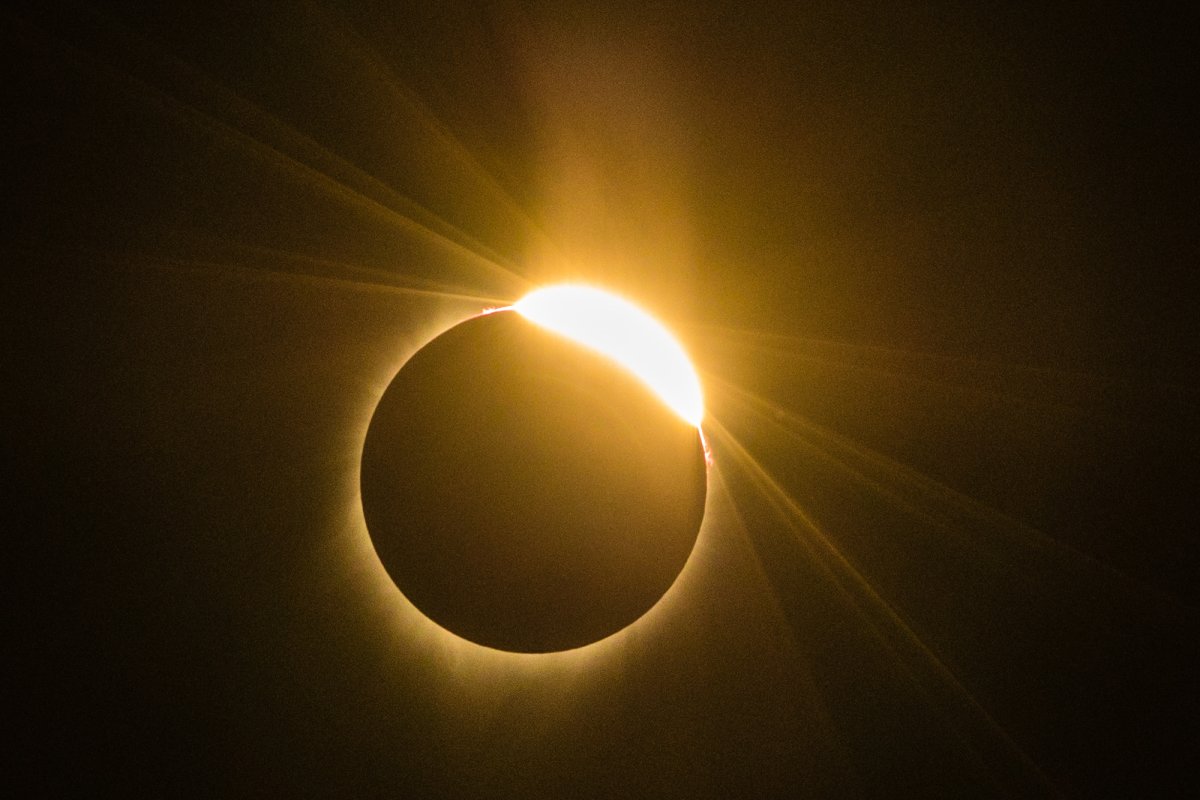For students at the University of Texas at Austin, classes will look a little different in a few weeks when the total solar eclipse occurs.
On April 8, the moon will be positioned so that the entire disc of the sun will be blocked out in several U.S. states, plunging millions of people into darkness during the early afternoon.
The path of totality will start in Mexico and extend across Texas, Oklahoma, Arkansas, Missouri, Illinois, Indiana, Ohio, New York, Pennsylvania, Vermont, New Hampshire, and Maine before heading out over the North Atlantic.

The spectacle is expected to draw crowds from around the nation as people head to areas in the path of totality to witness the eclipse. Officials across the country have voiced concerns about stretched public safety resources, an "enormous strain" on local hospitals and congested roadways.
Some schools already plan to close for the day, citing student safety. Others, like UT Austin, are canceling classes because the astronomical phenomenon is a once-in-a-lifetime experience they don't want their students to miss.
"For those of you who live, work and study on the Forty Acres, we're planning the Total Eclipse of the Horns—a campus-wide viewing experience from noon to 3 p.m.," a message from UT Austin President Jay Hartzell said. The Forty Acres is the original tract of land set aside for the university, although it has greatly expanded since then.
"Stations located around campus will distribute free viewing glasses and share more information about what we'll see during the eclipse. Our University Events and Experience team will be distributing those materials ahead of time to our faculty and staff members who work at the J.J. Pickle Research Campus and other Austin-area locations."
Newsweek has reached out to UT Austin by email for comment.
The upcoming total eclipse is Austin's first since 1397 and its last until 2343, according to the statement.
"The Great North American Eclipse is an opportunity for us to gather as a UT community for a defining Longhorn experience unlike any other in our lifetimes," Hartzell said.
In Austin, the eclipse will be viewable from 1:36 p.m. local time to 1:38 p.m.
"The university will be setting aside time for community-wide viewing from 1 to 2 p.m. that day. Classes will not meet, and most normal university services will be suspended for that hour," Hartzell said.
Some Texas cities are expecting their population to triple because of the number of visitors that will flock to the path of totality to view the eclipse. At least four states within the path of totality have urged residents to stock up on groceries and gas in the days leading up to the eclipse, as traffic is expected to overwhelm local roads.
Uncommon Knowledge
Newsweek is committed to challenging conventional wisdom and finding connections in the search for common ground.
Newsweek is committed to challenging conventional wisdom and finding connections in the search for common ground.
About the writer
Anna Skinner is a Newsweek senior reporter based in Indianapolis. Her focus is reporting on the climate, environment and weather ... Read more





